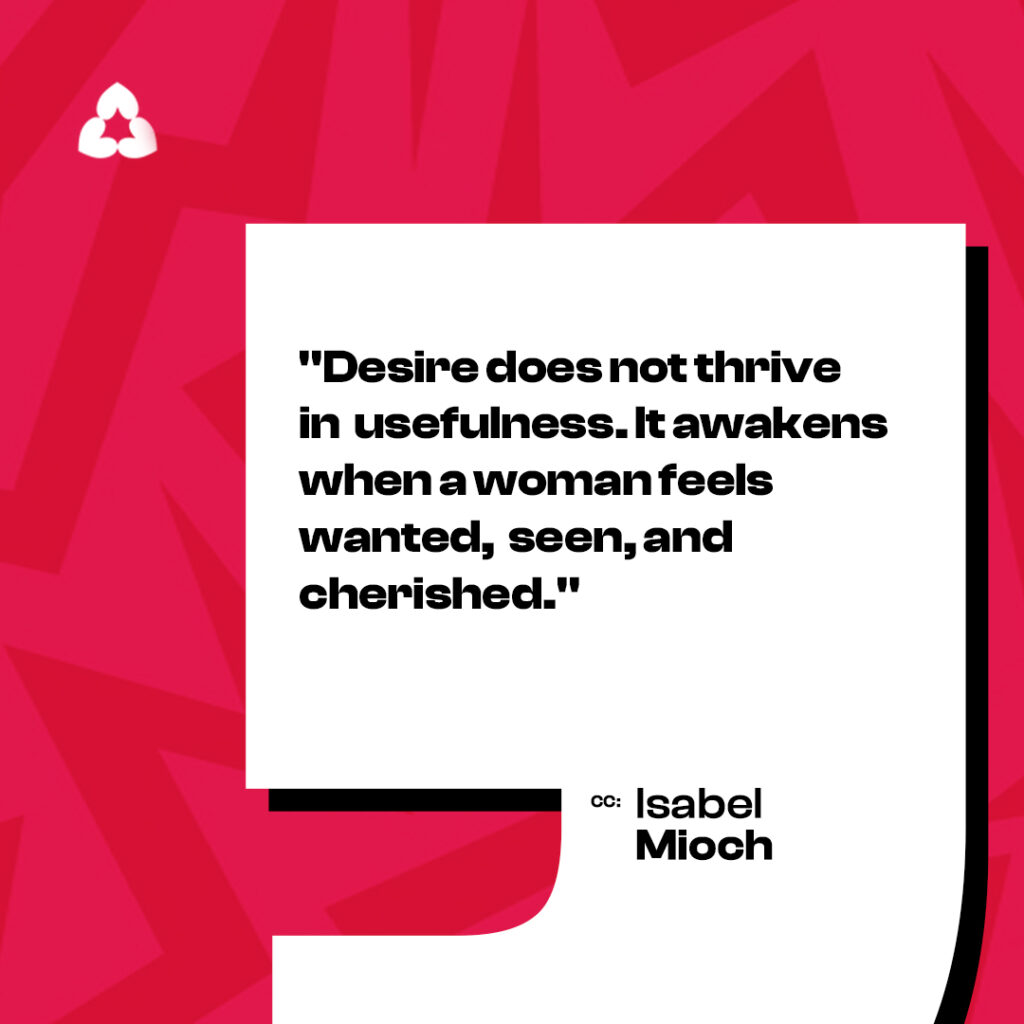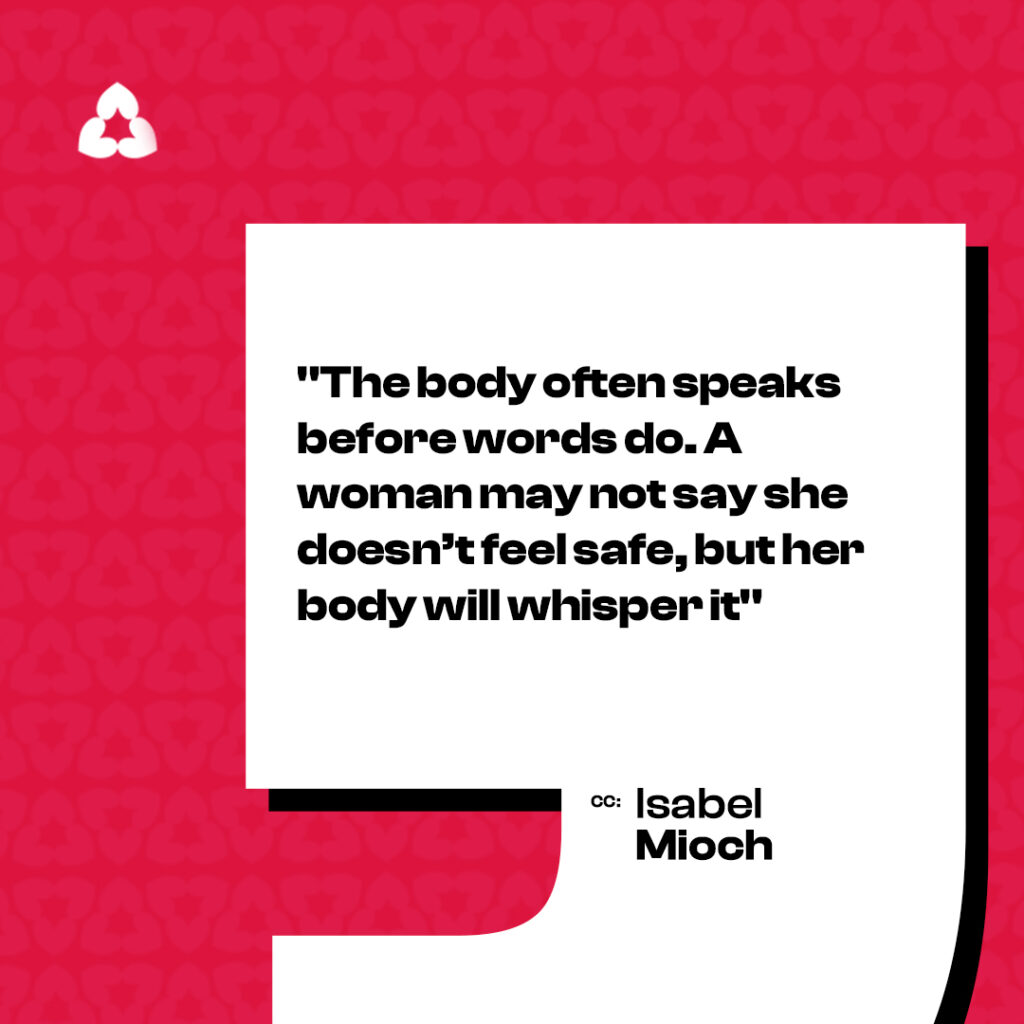Every marriage moves through seasons of closeness and seasons of distance. For some couples, that distance stretches into a painful silence. Love is still there, yet intimacy feels out of reach. Trust has been shaken, emotional presence has faded, or the weight of daily life has pressed desire so far down it feels lost. One partner goes numb, the other feels unseen, and together they wonder if there is still a way back.
That question is at the heart of my conversation with Isabel and Andrew Mioch, certified sexologists and intimacy coaches who work with couples around the world. Together they have guided thousands of men and women back into connection with themselves and with each other, proving that even after betrayal or years of quiet disconnection, intimacy can be healed and love can be renewed.
Andrew, many men describe feeling emotionally numb, shut down, or distant in their marriages, even when they love their wives. What causes this numbness, and how can men begin to reconnect to their own emotions and bodies?
Most men are not emotionally numb by nature; they have been trained to disconnect. From boyhood, they are told to suppress emotions, push through pain, and never appear weak. By the time they reach adulthood, shutting down has become their default setting. They love their wives, yet feel distant. They long to connect, yet feel nothing.

Numbness is a survival strategy, not a flaw. The cost, however, is devastating because it cuts men off from their bodies, their sexuality, and their ability to feel love fully. The way back begins with slowing down. Not thinking more or trying to fix things, but simply noticing what is happening inside. A tight chest, a shallow breath, tense shoulders—these sensations are the starting point of reconnection. Instead of running to distractions like porn, endless work, or busyness, men must sit with what their bodies are saying.
A simple practice I recommend is ten minutes of meditation each day. No goal, no fixing, just being with yourself. This kind of presence reboots the nervous system. Over time, feeling returns. And when a man feels again, he no longer performs intimacy; he leads it. That shift from performance to presence is what reignites both emotional and physical connection.
Isabel, on the other side of that, many women feel unseen, like their desires don’t matter, like they’ve become just a role—wife, mother, helper. What impact does this invisibility have on her sexuality, and how can she begin to reclaim it?
When a woman feels invisible, her desire does not just disappear. It goes into hiding. Not because she is broken, but because she has been reduced to function. To service. To being useful. And that is especially true when she is wearing so many hats in one day: wife, mother, cleaner, cook. For working women, there are also emails, meetings, and performance reviews, and at the end of it all, she is expected to open up with softness and passion. Inside, she feels depleted. She may be effective, but she no longer feels radiant.
Desire does not thrive in usefulness. It awakens when a woman feels wanted, seen, and cherished. Reclaiming her sexuality begins with permission—the permission to stop performing and simply be. That might look like resting, breathing deeply, eating slowly, self-pleasuring, or whispering gently to herself, “It is safe to let go.”
One simple practice is to close the eyes, place both hands over the lower belly, and breathe until the body softens. At first desire will whisper faintly. But when she feels safe, those whispers grow louder.
And when a woman hears her own desire again, she does not just reclaim her sexuality. She reclaims herself.

Sometimes the disconnect is caused by betrayal, infidelity, emotional absence, or porn addiction. Andrew, what is the real impact of broken trust on intimacy, and what does the healing journey look like for a man who genuinely wants to repair the damage?
Trust is the spine of real intimacy. Without it, sex becomes empty calories. You can still physically reach orgasm, but it is that flat, forgettable kind of climax. No depth, no fire, no afterglow.
When trust is intact, eye contact alone can feel electric. Her body softens. Yours opens. And suddenly you are both having the kind of orgasm that makes you feel more alive than anything else. That is what sex was designed for: connection, surrender, and primal, unapologetic love.
When trust breaks, whether through betrayal, porn addiction, or emotional neglect, it is not enough to just apologize and glue the pieces back together. That is a weak repair. One crack, and it shatters again. A truly sincere man does not glue. He melts. He melts the old version of himself—the habits, the denial, the entitlement—and reshapes it from scratch. It is a full-body, full-mind transformation. Not just showing up differently in the bedroom, but thinking differently, listening differently, and leading differently.
Here is a fun fact: sincere comes from the Latin “sine cera,” which means “without wax.” As in, no fake glue holding things together. If you want to rebuild trust, you do not patch. You transform. You shift your body, your mindset, your perspective. And if you do not change all three, she will feel it is fake. But if you rebuild from the inside out, she will feel something deeper: safety. And safety is what makes a woman’s entire nervous system say, “I can trust you again.”
Isabel, when trust is broken, a woman’s body often shuts down. What are the subtle ways her body says, “I’m not ready”? And how can she begin to feel safe again in herself and with her partner?
The body often speaks before words do. A woman may not say, “I don’t feel safe,” but her body will whisper it. She may avoid being touched even in small ways, like a brush in the kitchen or a kiss goodnight. She may tense during intimacy, though she insists she is fine. She may stop initiating, not from disinterest but from self-protection. Her arousal may feel numb, forced, or disconnected. Sometimes she dissociates during sex, present physically but not emotionally there.
These are not signs that she does not love you. They are signs her nervous system is still scanning for danger. Rebuilding that safety starts inside her but also inside the relationship.

Safety begins with slowing everything down and removing the goal of sex. It begins when she sets the pace, even if that means weeks with no penetration. It grows through daily attunement—gentle check-ins like, “How are you really feeling today?” And it deepens when her partner regulates his own emotions instead of arriving with impatience or urgency.
The turning point comes when she is allowed to say no without fear of punishment. When her body feels like hers again, not something to guard or perform with, desire begins to return, not from pressure but from peace.
There are also couples who did not experience a big betrayal. They simply drifted apart over time. Isabel, what does emotional absence or lack of presence do to a woman’s sexual desire? And how does she begin to voice what she needs?
Emotional absence does not leave bruises, but it leaves voids. When a partner is physically there but emotionally distant, a woman does not always rage or weep. She quietly fades. Her body goes silent. Her libido dims, not because she is broken, but because desire cannot grow where it is unseen.
You will know the emotional absence is affecting her desire when sex starts to feel like another task instead of something she craves. She may get turned on in fantasy but not in real life, because fantasy at least pays attention to her. She may stop asking for what she wants because she assumes it will not land. She may overfunction in other roles—mother, career woman, caretaker—to avoid the pain of being unseen. And often she does not even realize what is missing until her body says, “I do not want to be touched.”
To voice what she needs, the first step is not yelling or blaming. It is softening inward. A simple phrase is, “Can I share something vulnerable with you?” That line opens the door authentically, not with defense. Then, “I miss feeling you with me. Not just in bed but in the room. I want to feel us again.” This is not about knowing exactly what to say but about permitting yourself to speak before you are completely ready. Presence does not return with pressure. It returns with an invitation.
Andrew, when a man wants to reconnect but does not know how, what does “showing up” really mean in the bedroom? Can you share what that looks like emotionally and physically?
Showing up does not mean doing more. It means being there fully—emotionally and physically. The nervous system is engaged, eyes open, heart soft, and body grounded. It means you are not just in the bedroom; you are truly with her.
Most men believe it means performing better, lasting longer, trying new positions, or adding toys. That is not it. Any man can do more. But the man who shows up feels more.
You know you are showing up when you breathe with her and tune into her body instead of racing ahead or zoning out. When you ask questions that invite depth, not “Do you like that?” but “How is your body feeling right now?” When you make eye contact during intimacy and let it melt her. When you hold her after she cries without rushing to fix it. When you stay anchored in your own body so she can trust you will not collapse under pressure.

Women do not want perfect sex; they want presence. They want to feel that you are steady enough to hold all of them—their desire, their hesitation, their surrender. That is what makes a man unforgettable.
So showing up is not a technique. It is a way of being. It is masculine presence and leadership in intimacy. And when you bring that into the bedroom, everything changes.
Isabel, many women carry pelvic trauma that does not come from abuse but from years of neglect, pressure, pain, or shutdown. How can embodied intimacy help her release that weight and feel safe in pleasure again?
Not all trauma is loud. Sometimes it is quiet, built over years of saying yes when she meant no, of pushing through pain, of being touched without truly being felt. That history lives in the body as tension, numbness, or a sense of being present but not at home.
Embodied intimacy melts this slowly. It happens when she is met without pressure, when she can breathe without fear of what comes next, when every part of her is welcome, including her silence, her tears, or the moment she pulls away.
Sometimes healing looks like slowing everything down until a single touch feels electric again. Sometimes it means crying during sex and not apologizing for it. And sometimes it starts long before the bedroom, with a partner holding her fully clothed and whispering, “I’ve got you.”
When she feels that safe, pleasure stops being something to perform or earn. It becomes something she can receive. And in receiving, she begins to remember who she is.
For couples who are ready to try again, what daily or weekly practices do you both recommend that help rebuild emotional safety, ignite sexual presence, and strengthen connection outside of intercourse?
For men, the key is to stop waiting until things feel right in the bedroom. Start creating right. Reconnection begins with leadership, not control, but clarity, structure, and intention. One practice is the Mioch Method, a guided sexual meditation that reconnects breath, sound, and movement. Another is the Penis Appreciation Meditation, designed to ground masculine energy by honoring both the body and the heart. Done consistently, it creates presence that melts her.
Beyond personal practices, shared rituals are just as powerful. A weekly date night, whether playful or erotic, shows intention. It does not have to end in intercourse, but it must be infused with presence. Even simple acts of touch or foreplay without agenda build safety and trust.
And when she is ready, lean into foreplay with devotion. Give her a pussy massage without agenda, be intentional with your touch, kiss her deeply, and enjoy going down on her—not because you expect anything in return, but because you genuinely enjoy giving. That is what builds trust through turn-on.

For women, safety is built through consistency, not just intensity. One of the simplest practices is the SQL’s Two Laws of Love: kiss each other every day for at least ten seconds, a real kiss that says, “I still see you.” And set aside ten minutes daily for uninterrupted conversation with no logistics and no distractions. These rhythms of attention create the foundation for intimacy to grow again.
Couples can also explore the Perfect Day exercise, a guided journaling practice where each partner writes out their ultimate sexual day without censoring, editing, or filtering through what they think the other person might want. They can choose to keep it private, but if they decide to share, it can open the door to some of the most authentic conversations—and sometimes the most profound experiences of intimacy.
Healing is not about going back to what was, but about creating something new together, one touch, one choice, one breath at a time.
If you could each leave one message with a couple who feel like they have grown too far apart to ever come back together, what would you want them to carry from this conversation?
Disconnection does not mean it is over. It means something deeper is asking to be rebuilt. Couples have gone from sleeping in separate rooms to having the best intimacy of their lives—not because they returned to normal, but because they created something new with more truth, more fire, and more presence.
It only takes one person to lead the reconnection. If you are that man, start now. Lead with presence. Lead with your body. Lead with your heart wide open, even if she is frozen, even if you are scared. You do not need all the answers. You just need to show up.
And remember this: you are not broken. Intimacy does not demand perfection. It grows through authenticity, through choosing each other again and again. Even when it feels like nothing is left, the very desire to try is enough to begin. Often, the love that comes after rupture is deeper and more alive than what came before.











